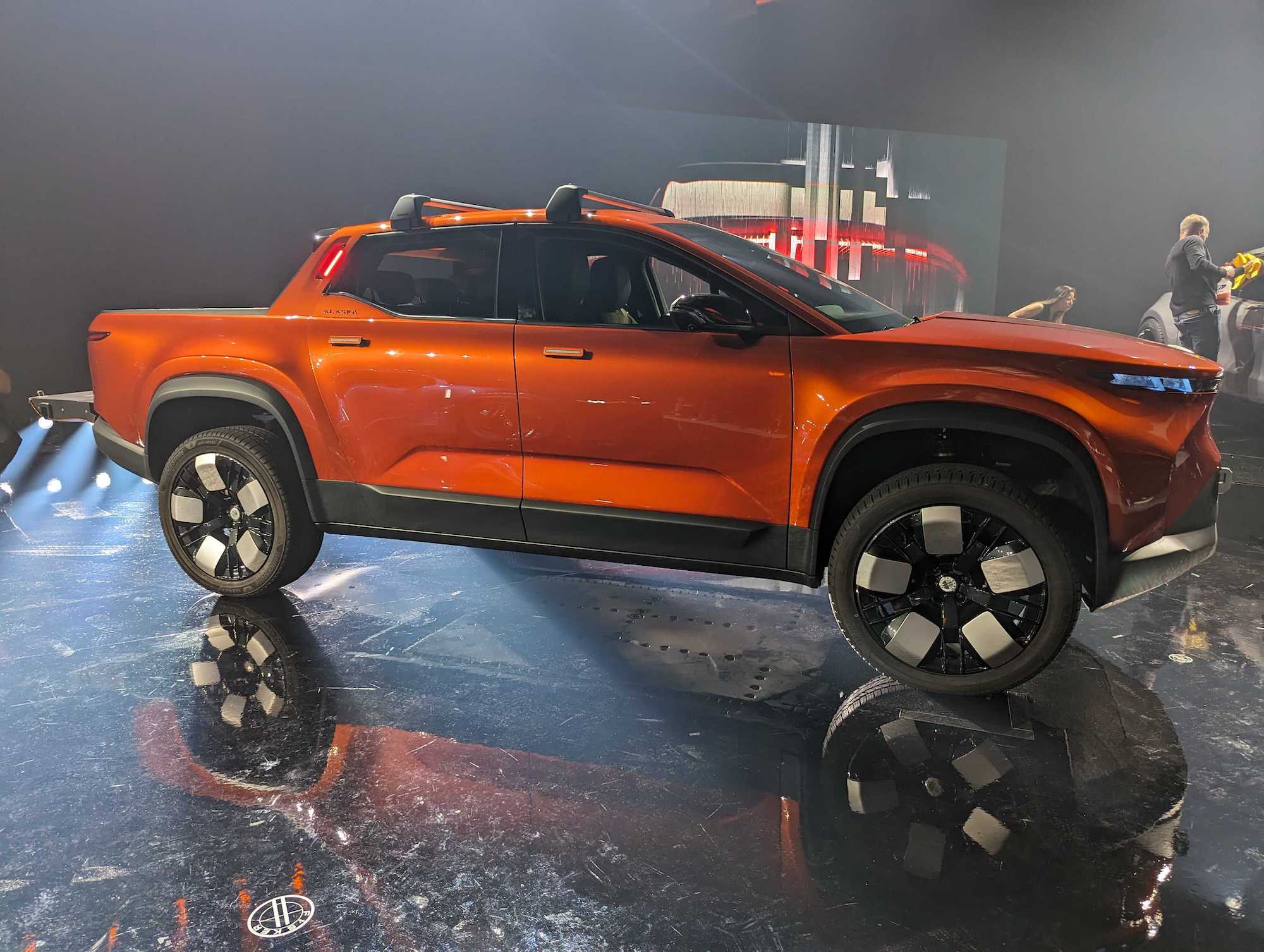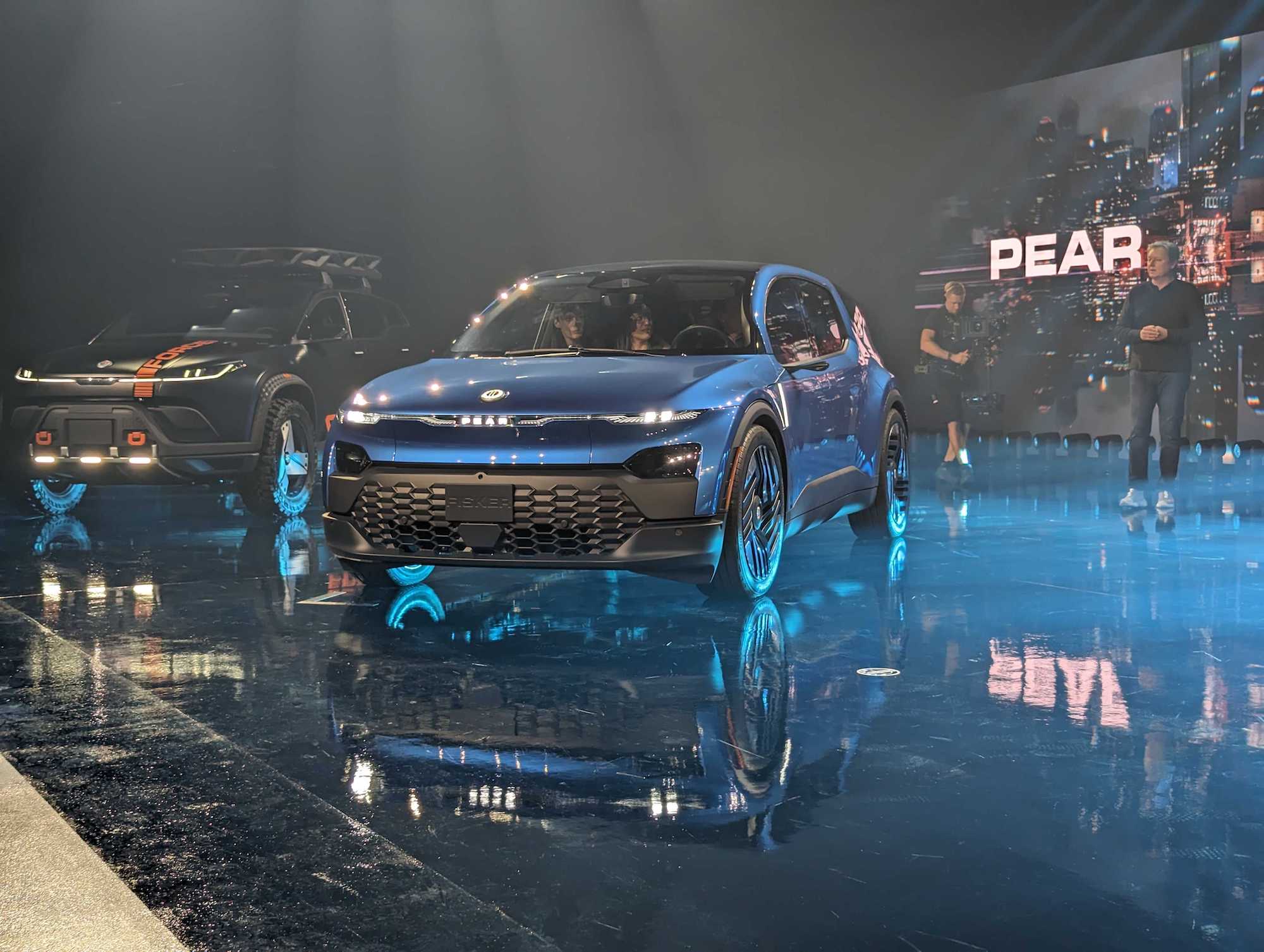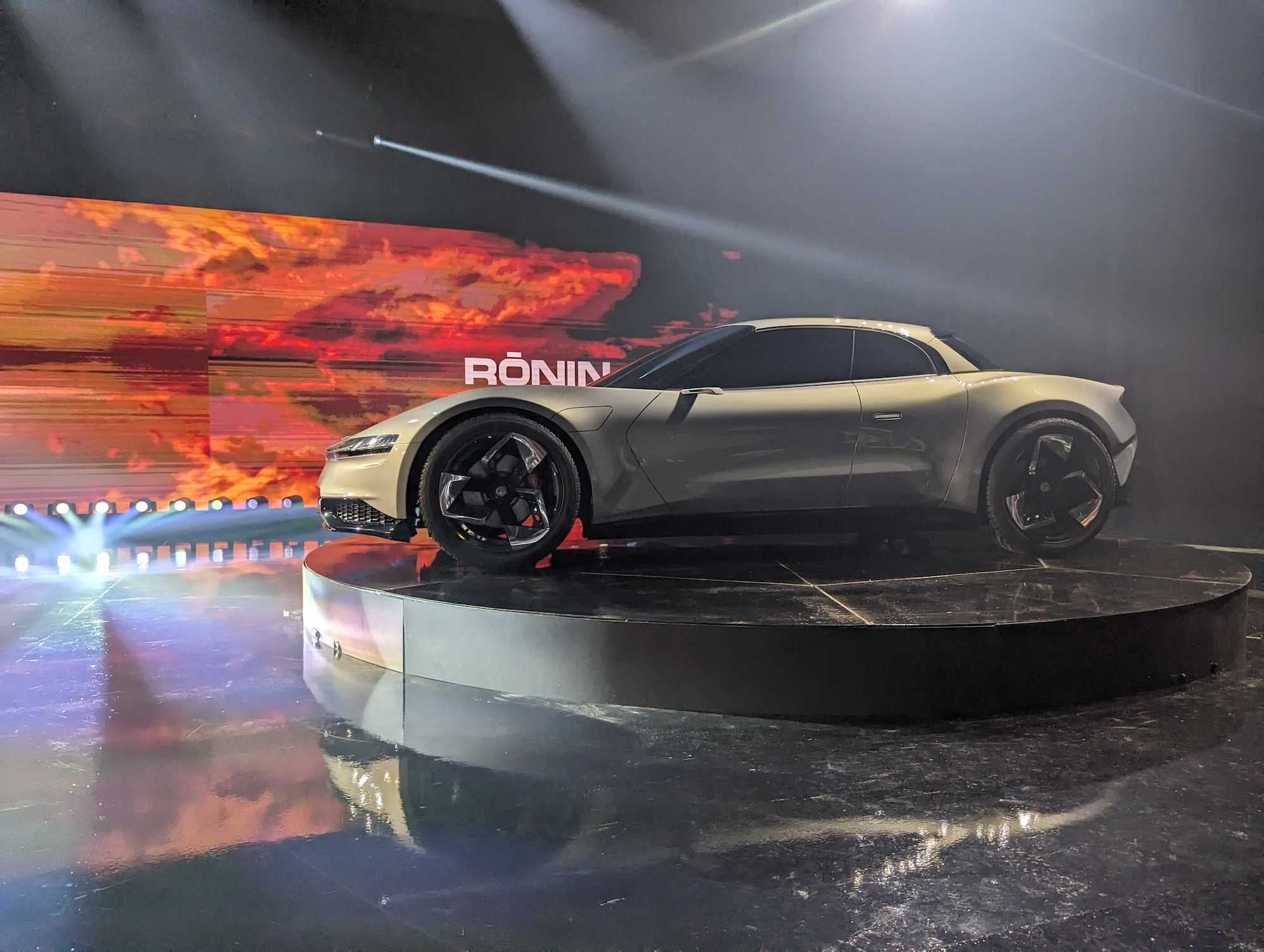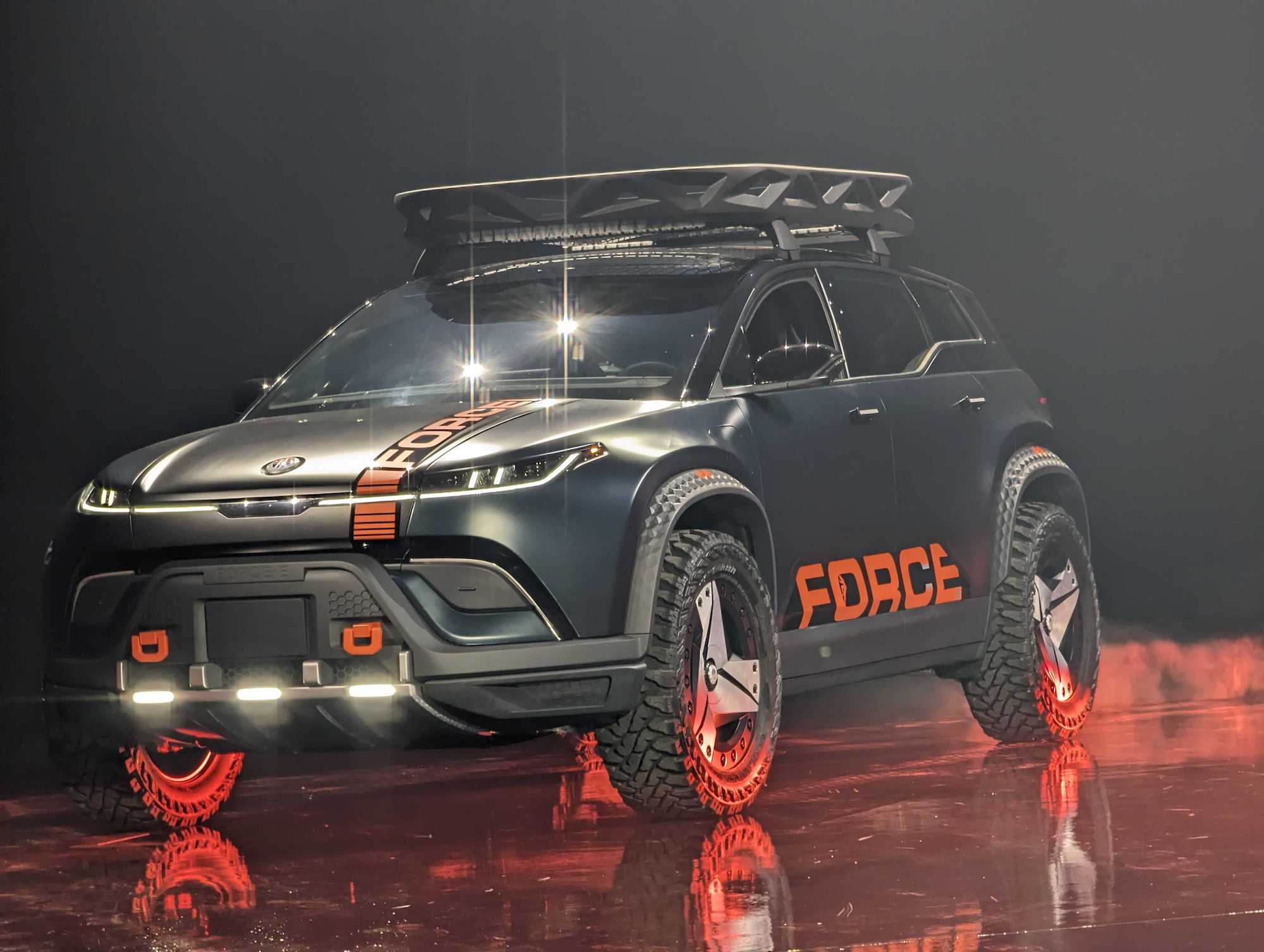Business
Fisker reveals all-electric Alaska pickup, 3 other EV prototypes

Fisker, the automotive startup-turned publicly traded company founded by famed automotive designer Henrik Fisker, revealed Thursday night a dizzying array of EV prototypes from a beefy pickup truck with an expandable bed, and grand tourer sports car with up to 600 miles of range to a souped-up, off-road version of its Ocean SUV and the mysterious PEAR vehicle that it plans to build with Foxconn.
The showcase, which was part of an event in Huntington Beach, California for investors and media, was the first time that Fisker has shown off all of its future vehicles in prototype form and laid out its expansive and ambitious future product plan. And Fisker is taking reservations for all of them.
“I think the traditional car industry really liked this idea about coming up with a new car every year or every second year, but I think we’re in a completely different time right now. You know, coming out of the COVID hangover,” Henrik Fisker told TechCrunch. “My strategy is, I kind of want to seize the moment. And rather than looking at COVID as something that’s gonna stop us or slow us down. I kind of want to accelerate. And the reason is that I believe that the entire pie of the market is up for grabs, probably in the next three years.”
While the EVs shown Thursday are only prototypes and the specifics are scarce, the company did share some new details that provide a clearer picture of what road — or roads — Fisker is taking.
Luxury pickup truck: Fisker Alaska
CEO Henrik Fisker has called the pickup the “Ferrari of pickups,” targeting other successful all-electric luxury pickups in the space, including Rivian’s highly popular Rivian R1T, the still-vaporware Tesla Cybertruck and the Ford F-150 Lightning.
The Alaska is built on a similar platform as the Ocean, but it’s been stretched slightly. Fisker calls the platform under the Alaska, the FT31. The company said the EV pickup will be built by automotive contract manufacturer Magna Steyr in Europe at the same plant as the Ocean.
Fisker said Thursday that the Alaska will get up to 340 miles of all-electric range along with some unique features, including a “big gulp” cupholder and water bottle, an extendable bed that goes from a 4.5 feet to 7.5 feet with the push of a button, and various cubbies and storage bins, including one for a cowboy hat.
The extendable bed has an interesting feature that might be attractive to campers. The back window of the cab and rear wall can be dropped, allowing the cabin to open up to the truck bed and lengthening the entire area (when the tailgate is down) to 9 feet, 6 inches. This feature, which Fisker calls the Houdini Trunk, would offer a sort of sleeping platform for owners or could be used to carry longer items.
Henrik Fisker noted in an interview with TechCrunch that the company is considering adding “all kinds of fun stuff” for the Alaska truck to go head-to-head with the Rivian R1T, a pickup known for its thoughtful accessories like the hidden flashlight, Bluetooth speaker and since discontinued camp kitchen.
Fisker said that the Alaska will come to market in 2024 and have a starting price of $45,400 before incentives. With incentives, Fisker says that the Alaska will cost $37,900. Reservations for the Fisker Alaska opened this evening with deliveries taking place sometime in 2025, according to the company.
The PEAR
Alongside the Alaska, Fisker showed off the PEAR for the first time.
The PEAR, which stands for Personal Electric Automotive Revolution, was going to be built in conjunction with Foxconn at the Lordstown Motors plant in Ohio. Lordstown Motors has since filed for bankruptcy and sued against Foxconn. It’s unclear if the PEAR will still be built at that location.
Fisker says that the $29,900 (before incentives) PEAR gets up to 300 miles of range in its dual motor, all-wheel drive form and calls the vehicle a “fully connected mobility device” complete with on-board supercomputers that reportedly handle as much as 6.2 teraflops of data. The supercomputers have been built in-house by Fisker and are called Fiskerblades.
The range for the Pear is roughly 50 miles less than other high-volume EVs like the Hyundai Ioniq 5 and 6, both of which are priced in the $40,000 range, but no automaker has yet been able to build and offer an EV for under $30,000.
To keep the price of the PEAR low, Fisker is going for the volume play, noting that once the Lordstown plant ramps up production, the company plans to build 250,000 PEARs per year at that location. At tonight’s event, Henrik Fisker said that he eventually hopes to build 1 million Pears per year at factories around the world, including those in the U.S., China, Europe and India.
The Pear is built on what Fisker calls the SLV1, or Simple Light Volume platform, and will have an all-steel body and frame. The company said it has used an internal development process to make manufacturing more efficient and lower costs. For instance, many of the parts inside the smaller EV crossover are interchangeable and the armrests on the doors are exactly the same.
Fisker said it was able to take out 35% of the parts in order to lower cost and make it easier and faster to assemble.
Henrik Fisker confirmed that the Pear is done in terms of design and the company is currently going out to suppliers to get it built. Fisker said that the Pear will be coming in mid-2025.
One unique feature of the Pear is the rear tailgate which neither opens up or down like traditional tailgates. Instead, it slides down into the rear bumper and disappears. The company also refers to this as the “Houdini Trunk,” the same name it uses for a somewhat similar disappearing act in the pickup.
The Pear also comes with an option for a bench seat in the front, offering optional seating for three people, rather than two, increasing the compact passenger car capacity to as many as six people. The Pear also gets a lounge seating option, where the front seats can lay back and people can watch a movie on the center screen (the 5-passenger version gets the same 17-inch screen as the Ocean) from the rear when charging.
Reservations for the “urban EV,” which is about the size of a Subaru Crosstrek, opened in February of last year, The company says that they have more than 70,000 reservations for the Ocean and the PEAR, combined.
A sports convertible: Fisker Ronin
The all-electric Ronin, which was also shown in prototype form, marks Henrik Fisker’s return to the high-end luxury sports car market.
The vehicle — named after the movie Ronin that is famous for its multiple car chase scenes — is meant to showcase Fisker’s vision of the future supercar and serves as the technology “carrier” for all the other vehicles in the lineup.
To the CEO, that means a four-door, grand tourer with butterfly-winged doors, a coupe-like sloping roofline and tri-motor powertrain that produces more than 1,000 horsepower and can travel 0 to 60 miles per hour in around two seconds. The vehicle will be equipped with a retractable carbon fiber roof that can fit in its trunk.
If that’s not wild enough, Fisker says it will still be spacious enough to fit up to five people and their luggage.
The Ronin will be equipped with a new type of battery pack integrated into the body of the grand tourer with a targeted 600-mile range, Fisker said Thursday. If successful, that would put the Ronin’s range far ahead of any other EV on the market.
Production starts in the second half of 2024, according to the company.
Luxury off roader: Force E
The big surprise Thursday was the Force E, an off-roader version of the Ocean SUV — its only EV currently on the market.
Fisker widened the Ocean SUV with fenders, added a skid plate and eye-catching 33-inch wheels. The company, which called the Force E a “hardcore off-road package,” will be available in the first quarter of 2024.
-

 Entertainment7 days ago
Entertainment7 days agoWhat’s new to streaming this week? (Jan. 17, 2025)
-

 Entertainment6 days ago
Entertainment6 days agoExplainer: Age-verification bills for porn and social media
-

 Entertainment6 days ago
Entertainment6 days agoIf TikTok is banned in the U.S., this is what it will look like for everyone else
-

 Entertainment5 days ago
Entertainment5 days ago‘Night Call’ review: A bad day on the job makes for a superb action movie
-

 Entertainment6 days ago
Entertainment6 days agoHow ‘Grand Theft Hamlet’ evolved from lockdown escape to Shakespearean success
-

 Entertainment6 days ago
Entertainment6 days ago‘September 5’ review: a blinkered, noncommittal thriller about an Olympic hostage crisis
-

 Entertainment6 days ago
Entertainment6 days ago‘Back in Action’ review: Cameron Diaz and Jamie Foxx team up for Gen X action-comedy
-

 Entertainment6 days ago
Entertainment6 days ago‘One of Them Days’ review: Keke Palmer and SZA are friendship goals



























